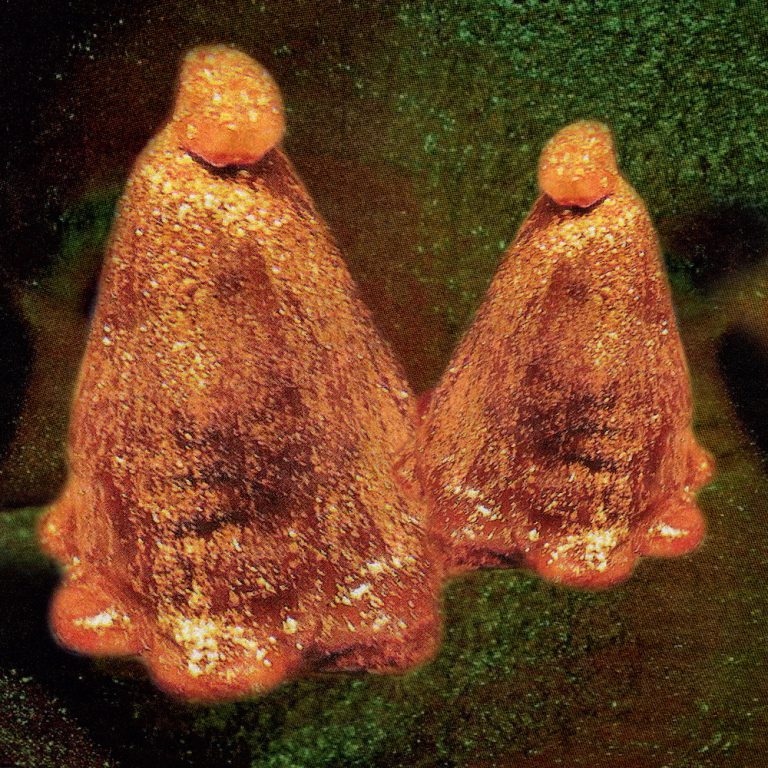The two 2019 albums from Marc Richter, aka Black To Comm, were among the best experimental noise albums in recent times. Harnessing the warped humour of Throbbing Gristle and the dense aural textures of Nurse With Wound, both Seven Horses For Seven Kings and Before After explored haunting sonic terrains of seething disquiet and dreamlike distemper. The soundtrack to a surrealist’s wet dream, the work established Black To Comm as an artist of immense visual power in an auditory form.
His third record in two years, Ooctye Oil & Stolen Androgens, is comprised of tracks originally written to accompany various art installations. Here, Richter’s work evokes ideas of the melancholy of war, the possibilities of the human voice, and the atonality of life.
The snappily titled opening track “Gustav Metzger as Erwin Piscator, Gera, January 1915”, combines spoken-word delivery with intricate and finely-balanced instrumentation to conjure images of warfare, strife and isolation. The track opens with a dizzying and swirling effect, as eddies of voices and indistinguishable background chatter interweave themselves in the mix to disorienting effect. The sound of fractured cymbals, distorted and fragmented, clash with an array of other broken and dissociated voices. From the aural mists comes a female voice offering a poem of war, which is superseded by an elderly man recounting a story from a first person perspective, set against a backdrop of silence. “Gustav Metzger” is a dramatic and tense piece of work, with the mesmeric ebbing and flowing in stark contrast to the reality of the old man’s tale. Black To Comm both alienates the listener through disconcerting and abstract sounds, whilst also nurturing an emboldened sense of the possibilities of humanity (good or bad) at the core of the work. At just shy of 18 minutes in length, there are more twists and turns on this opening track than most albums have in their total run time. A triumph of tension and the power of sound.
“Stolen Androgens” is soothing by contrast, but soothing in an agitated and restricting manner. A repeated piano refrain and murmured vocal noises envelope the listener in the same way that a David Lynch film is enjoyable in its total lack of comfort. It’s the sound of a somnambulist’s blissful lack of awareness, of the relative closeness between happiness and distress, of composure and alarm. The song acts as a meditation on the human voice – albeit through mutations of it. It’s a blurred song, with a warm hypnagogic feeling of uncanny familiarity – quite simply, it’s sonorously beautiful and mournful in equal measure.
The next two tracks, “Oocyte Oil” and “Gepackte Zeit (für Hanne Darboven)”, are droning soundscapes of sheer bliss – and are far too short. “Oocyte Oil” has a stretched string arrangement in its background, with field recordings over the top, ensuring the track unsettles as much as it soothes. “Gepackte Zeit” is a washed-out piece of neo-classical minimalism, with flourishes of sound that layer on top of each other for a resplendently dizzying effect. These tracks are sparser than a lot of Black To Comm’s work to date, adding an immediacy to the record that those familiar with his back catalogue may find surprising, but will certainly find gratifying.
Closing track “Rataplan, Rataplan, Rataplan (Arms and Legs Flying in the Air)” picks up the poem from “Gustav Metzger” and places it within another cacophonous soundscape, this time composed of clattering 808 drum patterns and squelching synth sounds. Brass instruments enter the fray, like a twisted samba band that has no concept of timing or tone and everything fades away into the ether as quickly as it came.
Black To Comm has the ability to scare you witless, like on “A Miracle No-Mother Child at Your Breast” from Seven Horses For Seven Kings, but with this record the focus is on more lulling sounds, though still with the ability to jar when necessary. Oocyte Oil & Stolen Androgens has a clear trajectory throughout, from intricate and complex soundscapes at the beginning to less skittish, less kinetic work by its end. It is a challenging album that requires your total immersion in it – do yourself a favour and listen to it on headphones.

